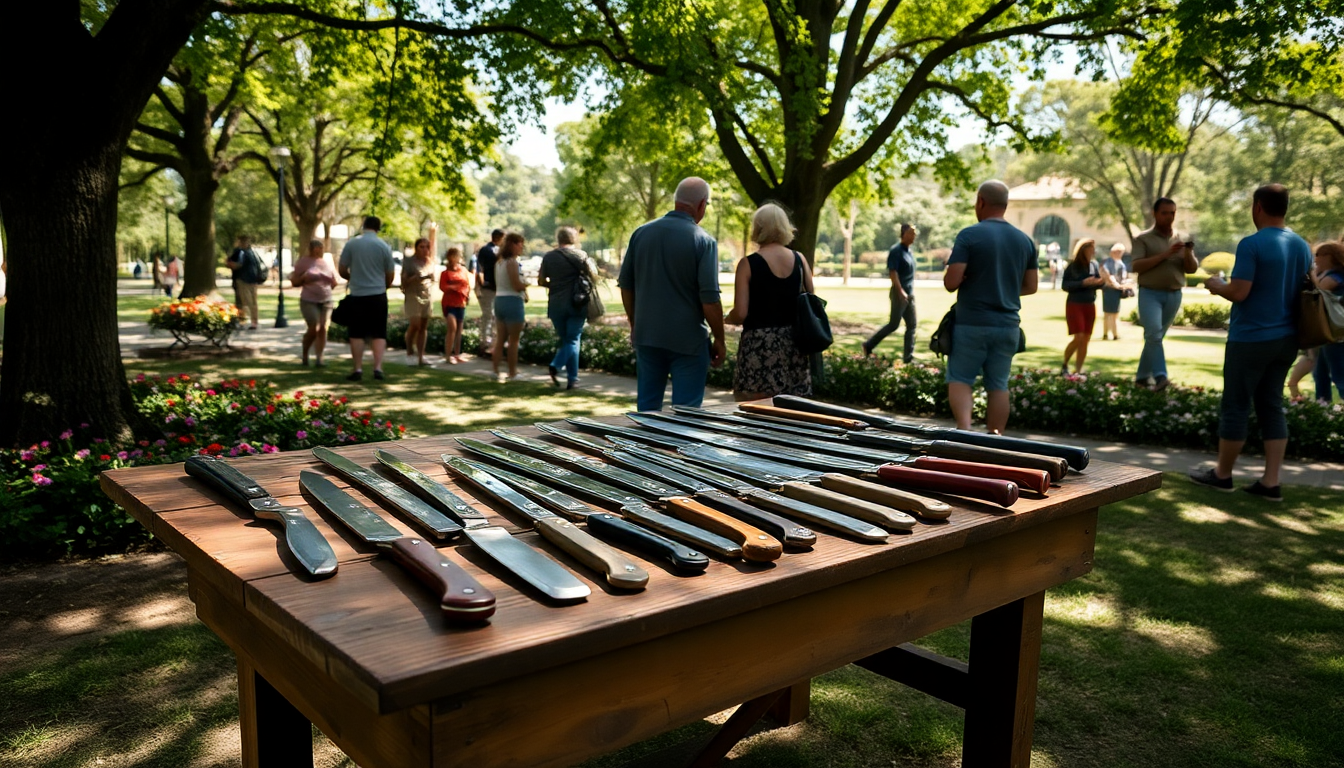Table of Contents
In a bold move to tackle the rising concern of knife violence, the state of Victoria, Australia, has launched an innovative machete disposal initiative. This program invites residents to hand over their machetes ahead of a statewide ban, aiming not just to boost public safety but also to curb potential criminal activities linked to machete ownership.
But what does this really mean for the community?
The Machete Amnesty: What You Need to Know
On Thursday, Victorian officials revealed that over 40 machete disposal bins will be set up at police stations across the state. This initiative gives residents a chance to safely dispose of their machetes without any penalties before the ban kicks in on September 1.
The Victorian government has made it clear: owning, carrying, or even selling a machete without a valid exemption will soon be classified as a criminal offense. This ban is part of a broader strategy to reduce the risks associated with these weapons and to enhance community safety.
During the amnesty period, running from September 1 to November 30, everyone is encouraged to surrender their machetes. Ignoring this could lead to serious consequences, including imprisonment for up to two years or hefty fines exceeding AUD $47,000 (around USD $31,725).
Such a stern approach reflects the government’s dedication to tackling knife-related incidents, which have become increasingly troubling in urban areas. Have you ever considered how something as seemingly innocuous as a machete could lead to such serious penalties?
Community Voices and Law Enforcement Measures
Victorian Premier Jacinta Allan has stressed the urgency of this initiative, stating, “These knives destroy lives – so we’re taking them off the streets.” The police have reported a startling increase in the seizure of illegal knives, averaging about 44 weapons daily.
This alarming statistic highlights the severity of the knife crime situation in Victoria and emphasizes the need for effective solutions.
Minister for Police, Anthony Carbines, reinforced the government’s position, urging those in possession of these weapons to act responsibly: “Our message to anyone with these weapons is simple – get rid of them or face the consequences.” This clear warning not only underscores the gravity of the situation but also serves as a call to action for those holding machetes unlawfully. Does this make you think twice about the weapons that might be lurking in your own community?
Who’s Exempt and What’s Next?
The government has specified certain exemptions for individuals allowed to possess machetes, such as agricultural workers who need them for their jobs and those using them for traditional or cultural practices. However, these individuals must meet strict conditions and be prepared to prove their eligibility if questioned by law enforcement. This careful distinction aims to ensure that the ban doesn’t negatively affect those who have legitimate reasons for keeping machetes.
Furthermore, the Victorian government has already taken significant steps by implementing a temporary ban on the sale of machetes since May, leading retailers like Amazon to remove these items from their sites. This comprehensive strategy reflects a commitment not just to enforce laws but also to educate the public on the dangers associated with machetes, reinforcing community safety. Are we moving towards a future where the community feels safer, or is there more work to be done?





